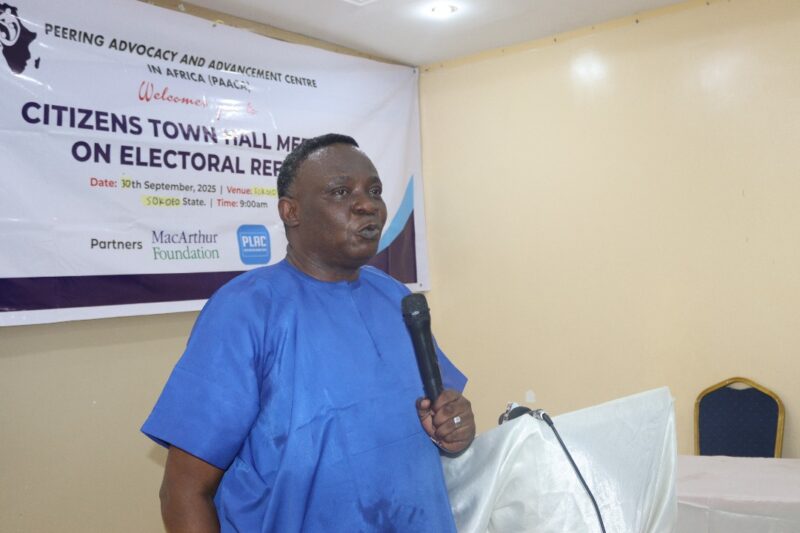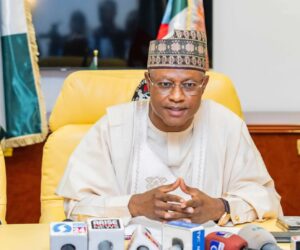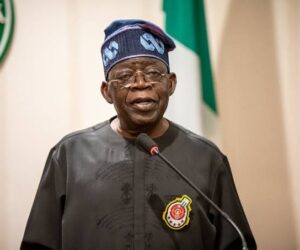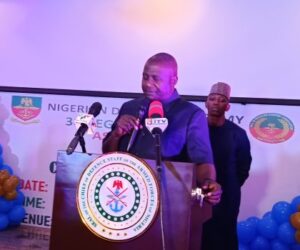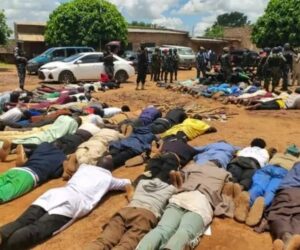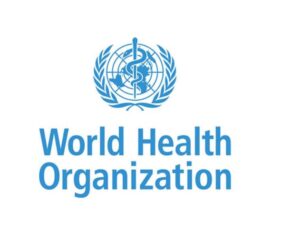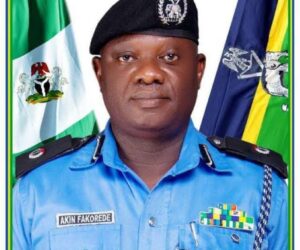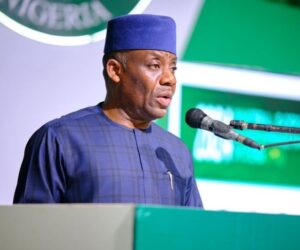As prepreparations for the 2027 general elections begin, Nigerians and particularly stakeholders in the electoral process have been urged to familiarise themselves with innovations, reforms and election guidelines introduced by the Independent National Electoral Commission (INEC) rather than allow themselves to be misled.
The call was made at a one-day town hall meeting organised by Peering Advocacy and Advancement Center in Africa (PAACA) in Sokoto to sensitise key actors on electoral reforms and improve voter education towards credible elections.
The meeting organised with support from MacArthur Foundation brought together key representatives of security agencies, the media, civil society organisations, and other stakeholders.
In his opening remarks, PAACA executive director, Ezenwa Nwagwu stressed the need to bridge knowledge gaps on key innovations and election guidelines by INEC to counter widespread misinformation, especially as the country prepares to enter political seasons.
He emphasised the need for discussion on elections to be evidence-based, explaining that elections are guided by laws. He urged stakeholders to study these laws to engage knowledgeably in electoral issues, rather than rely on misinformation.
He highlighted how politicians often mislead citizens and how poorly framed media narratives sometimes worsen mistrust in the system, noting that democratic consolidation requires citizens, political parties, and institutions to remain vigilant and informed.
“Ninety percent of crimes during elections are committed by politicians. If citizens are empowered with the right information, manipulation becomes difficult,” Nwagwu added.
He also stressed that while INEC and NOA play key roles in civic education, they cannot do the work alone, saying that civil society, media, security agencies, and traditional institutions must step up.
He charged leaders at all levels to take personal responsibility for educating themselves and their communities to strengthen Nigeria’s democracy, saying that “Those who take the pain to learn are better informed and can inform others better.”
Nwagwu stressed that citizens must equip themselves with three key documents to effectively participate in electoral process.
“You cannot talk about elections without the Electoral Act. Every citizen must also have a copy of the Constitution, especially leaders. These documents are not just for lawyers; they are for every Nigerian. The third document is INEC’s guidelines, which show that elections are law-guided processes,” he said.
The PAACA boss also reviewed the technological improvements made between 2015 and 2025, particularly highlighting the role of Bimodal Voter Accreditation System (BVAS) in drastically reducing manipulation in2023 elections.
Nwagwu explained the workings of BVAS and IReV, noting that many misconceptions stem from a lack of understanding.
He highlighted key innovations now mainstreamed by INEC, including the INEC Result Viewing Portal (IREV), Election Monitoring Dashboard, Political Party Financial Auditing System, the INECPRES portal for ad-hoc staff recruitment and the Voter Verification System (VVS)Technology which allows voters to track their poling units online to reduce confusion on election day.
The PAACA Executive Director said innovations such as the INEC Candidate Nomination Portal (ICNP – Web Version) have simplified the primary elections nomination process by political parties and improved transparency.
Nwagwu also dismissed claims that Nigeria’s elections are the most expensive, noted that such claims are not based on any data.
On the contrary, he said data published by ECOWAS Network of Electoral Commission which studied cost of elections in the ECOWAS region indicates that Nigeria’s elections are among the least expensive with the country spending about $8 per voter.
In a goodwill message, INEC’s Resident Electoral Commissioner in Sokoto State, Umar Yusuf Garba, represented by the Head of Voter Education and Publicity, Abdullahi Sale Dawa, described the town hall as an important platform to deepen understanding of electoral processes.
He said, “The just concluded 2023 general election offered valuable lessons. While the elections demonstrated progress in areas such as voter education, deployment of technology, and stakeholders engagement, they also revealed challenges that call for honest reflection and constructive dialogue . it is only through this engagement that we can consolidate the gains achieved, address identified gaps and chart a clearer path towards credible transparent and inclusive elections in the future.”
He stressed that INEC cannot succeed in isolation, noting that building a sustainable electoral system rests on the commitment of political actors, civil society, the media, security agencies, the judiciary, and the electorate.
The Sokoto state director of National Orientation Agency (NOA), Alhaji Babangida Kurfi represented by Ms. Okeke Uche Ngozi in his goodwill message said the town hall was timely as it provided an opportunity for stakeholders to reflect on electoral reforms, harness gains, and identify areas for improvement.
She noted that the quality of Nigeria’s democracy is closely tied to the quality of citizens’ participation.
Okeke stressed that reforms are meant to strengthen transparency and fairness. She highlighted the need to tackle vote buying, encouraged peaceful political activities, and pledged NOA’s readiness to partner with organizations like PAACA in grassroots sensitization.

